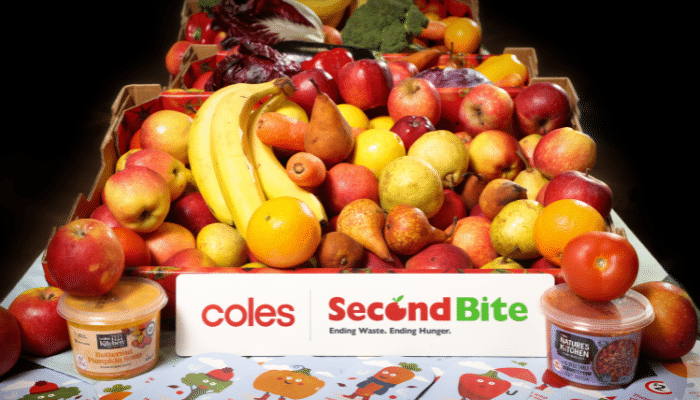Food waste’s role in the transition to a circular economy
Brooke Donnelly, General Manager Sustainability at Coles Group
Some people say that a circular economy is a mindset – in fact, it’s a paradigm shift in how we think about what we produce and consume every day.
As a community this means consuming with consideration, understanding the impact of our consumption, and maximising the utilisation of materials and resources used in our products, ensuring we minimise waste creation and we regenerate the precious resources we have.
This is a significant undertaking and requires a re-evaluation of our current linear business model, a redesign of systems and products, a better understanding of what additional value can be derived from existing products into second life options, and how we can recover more from our existing waste streams.
It’s an overwhelming task, however it’s imperative if we are to meet the goals of the Paris Agreement.
Transitioning to a circular economy will address 45 per cent of global emissionsi. This is an important consideration as we seek to tackle the climate challenge and understand how we deliver change as we endeavour to stay within a 1.5-degree trajectory.
We also know that food waste is a significant issue– in Australia it accounts for about three per cent of annual GHG emissionsii.
An area that Coles is particularly passionate about is waste reduction, and in particular, food waste.
Last financial year Coles diverted 84 per cent of the Group’s solid waste from landfill, an increase from 82.5 per cent in FY22. Food waste is a core part of this waste diversion program.
We divert food waste from landfill in many ways, including by donating unsold, edible food to our community partners who then repurpose it into meals for people in need.
For example, in FY23 Coles donated the equivalent of 40.1 million meals to people in need. This was from a total of 20.3 million kilos of food, valued at $133 million, that might have otherwise gone to landfill, but was instead provided to food rescue organisations SecondBite and Foodbank.
Since 2011, Coles has donated food equivalent to more than 200 million meals to Australians in need through our partnership with SecondBite.
In addition to the work we do with community partners, every Coles supermarket and distribution centre has a food waste solution available, something we achieved in June 2019.
Other food waste solutions include donations to farmers and animal or wildlife services, organics collections and in-store food waste disposal equipment.
We are also looking to reduce food waste in other ways, including through working with our suppliers to use as much of their crop yields as possible.
For instance, we repurpose parts of the crop that typically would not be sold in stores into other products such as our Coles Kitchen Cauliflower Rice or Zucchini Noodles.
We also sell produce that may be flawed in appearance but is otherwise edible, through our range of I’mPerfect fruit and vegetables, providing customers with great tasting quality produce at good value.
More than 20,000 tonnes of I’mPerfect edible fruit and vegetables were sold in FY23, returning millions of dollars to growers, and diverting tens of thousands of tonnes of food waste from landfill.
We’re proud of what we’ve achieved so far, but we know there’s much more we can do.
These results require serious commitment and effort and we have learnt a lot about the real value these efforts can produce for our business and our customers.
Our experiences to date have helped us understand how important it is to work collectively and in partnership on important sustainability initiatives such as circularity.
We look forward to working with our peers, industry and government to accelerate the transition to a circular economy and support the goals of the Paris Agreement.
[i] Ellen Macarthur Foundation ‘Completing the picture: how the circular economy tackles climate change: https://emf.thirdlight.com/file/24/XoGiOySXvopGQ9Xo4d6XnKIvUh/Completing%20the%20picture%20-%20%20Executive%20summary.pdf
[ii] WWF – ‘Fight climate change by preventing food waste’, Department of Climate Change, Energy, The Environment & Water, ‘Reducing Australia’s food waste
-
Stay up to date with the latest news, industry insights and ReGen updates.
- SUBSCRIBE TO REGEN

